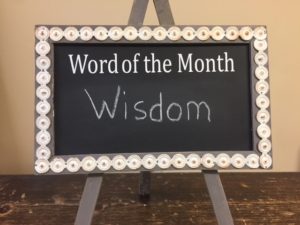Removing social media from your life for a time can bring awareness of how time is spent, personal choices and preferences and even positive aspects. It was a learning experience for me.
The Challenge
President Russell M. Nelson, of The Church of Jesus Christ of Latter-day Saints challenged the sisters of the Church to take a 10 day Social Media fast. He had issued a similar challenge to the youth of the Church earlier. The timing of this challenge was after I had spent a week on a cruise ship in somewhat of an involuntary Social Media fast. I took the challenge anyway, though I kind of justified ending it at about day 5, taking credit for time already served.
I do feel that my fast was sufficient for me to learn several important lessons and make some changes in my habits, which I think was a main goal of the challenge. You might learn very different lessons from such a fast. This is what I learned:
Lesson #1 – It is important to be aware of YOUR Social Media habits and their impact on your life.
There is great variety in the personal social media habits of different people. Things that may be an issue for one person are not for another. I think some people have genuinely addictive behaviors, while others use social media very rarely or not at all.
Personally, I don’t Tweet – I really don’t get Twitter – so Facebook is the only Social Media I use. (Even though I do have a Twitter account and auto-share Blog posts to Twitter for you Tweeters) I must admit that my use of Facebook has been not only daily, but several times some days.
Positive change does not happen without first some awareness of a problem. Removing something for a time is helpful in gaining awareness of things like how much time is spent, personal choices and preferences, negative and even positive aspects.
Lesson #2 – Social Media can provide preferred and even more balanced news.
While on the cruise I was away from all media, not just social media, for most of the time. At one point on the ship I noticed a group of people gathered around a TV screen in a lounge watching CNN or some news show. It was actually a shock to my system at that point – I didn’t realize how nice it had been without TV news. Commentators were discussing something that had been in the news for some time before I left. I listened just wanting to know if it was resolved and what was the outcome. What I heard was more of the same kinds of arguments and discussion I had left days before.
I realized that I prefer my “news” in printed form. I want to hear the facts of what happened. Then I can decide if it is a good thing or a bad thing. I don’t want reporters or commentators explaining or interpreting what happened and especially I don’t want to be told how I should feel about it. Unfortunately, that is what I get most of the time – from Mainstream media news on TV and from AP articles in the newspaper. My husband likes to watch shows like PBS News Hour. I get irritated listening to obviously biased “experts” telling us not just what happened but what we should think.
I would much rather read a reasoned and well written analysis than listen to people who seem most interested in listening to their own wisdom. What I realized while “fasting” from social media – for me Facebook – is that most news I get from TV and the newspaper is very biased. There are some non-liberal news sources which I access through Facebook, which along with the liberal media I also read, help me to be better informed and form my own opinions.
Lesson #3 – I use Facebook to keep in touch with friends and family, which is a good thing.
When starting the Social Media Fast, one of my concerns was missing out on what is going on with friends and family. I even started the fast with a Facebook post wishing people Happy Birthday in advance. Facebook allows me to keep in touch with family members and friends who live far away. I wondered what I missed in the way of birthdays, anniversaries, or other life events. Was someone having a hard time that I could not offer some encouragement because I did not know?
I have a friend who suffers from Lupus and has periods of time she is too sick to get out and do things. I can know how she is doing through Facebook. When she is well I see a number of likes of my posts, some going back many days or even weeks. When I see nothing from her for a time, I know she is not well.
I belong to several Facebook groups, some of which are vital for me to know what is going on – either events or activities of an organization or specific needs of people. They have discussions that I feel I can contribute to in a meaningful and helpful way. I can learn from these discussions as well.
Lesson #4 – There are many things I didn’t miss during the fast.
I don’t like to have ads constantly before me, so that was a nice break. It was refreshing not to get into any contentious discussions, which tends to happen when I dare to express an opinion about something. These can get me worked up and frustrated, which doesn’t help me and probably does nothing to convince anyone else to change their mind. I didn’t miss negative or critical posts. Sometimes it is hard to avoid these, but I can still choose whether and how to respond. I found I can get along quite well without cat videos and pictures of food.
Lesson #5 – Good, uplifting and inspirational things are shared on Social Media.
Much of what is on Social Media is positive. I follow some Pages that post inspirational thoughts and articles and stories. Many of my friends share uplifting things. It is interesting/ ironic that this challenge came from the President of our Church, when many of the posts I truly enjoy and missed were ones from Latter-day Saint focused Pages and groups. I love to read articles about scriptures, Church History, or spiritual topics.
President Nelson’s intent was to help us remove negative media from our lives. However by fasting from all Social Media, we can throw out the good along with the bad. Staying away from ALL social media also deprived me of things that could have benefited me.
Lesson #6 – Social Media does waste a good deal of time that could be better spent.
The worst thing of my social media use would probably be the time wasted. It is very easy to scroll through the seemingly endless social media posts. Sometimes I see again things I already scrolled though. I am a “multi-tasker” in the sense that I can scroll through Facebook while doing other things like talking on the phone with someone. This is a bad habit for not giving them the attention they deserve. We have old-fashioned TV and have to watch commercials, so I tune those out by looking at Facebook.
During my fast, I found I could get much more done during the day. I also read some good books – my multi-tasking during commercials and other times I probably would have been online. I learned more from those books than I would have from some of the silly posts and articles I might have read.
Lesson #7 – Social Media use does not have to be all or nothing. We can be discriminating users.
Because of this fast, I have tried to make some changes in my use of Social media. I try not to spend so much time scrolling through Facebook, though that is probably my biggest remaining temptation.
I did figure out that I could be more selective in what I see. Facebook allows you to select posts you want to see first. I went through and selected close friends and family along with some positive Pages and groups that I don’t want to miss. I also “unfollowed” some friends whose posts tend to be negative or distracting. Selecting “Hide Ads” can eliminate some of those annoying ads that keep popping up. If I were more tech savvy, there are probably other things I could do to make my use of Social Media more beneficial and less distracting. It is a process and does take some self control. Ultimately, it is my own choice whether to click on something senseless or something uplifting.



